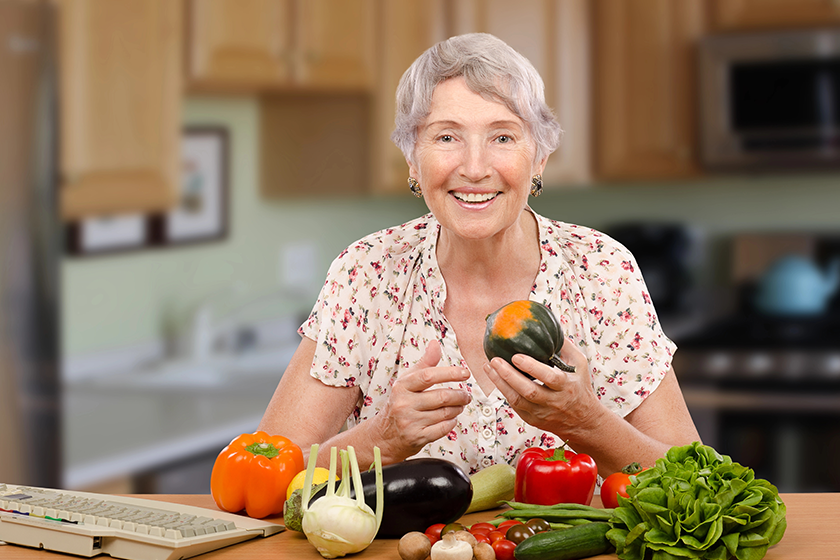Aging brings changes to the body that often require thoughtful adjustments to daily routines, particularly in meal planning and nutrition. A modified diet for seniors can support overall health, provide sustained energy, and address specific age-related concerns. By making intentional changes to food choices and eating habits, older adults can continue to nourish their bodies while maintaining an active and fulfilling lifestyle.
Prioritizing Nutrient-Dense Foods
Nutrient-dense foods, packed with vitamins, minerals, and antioxidants, are essential for seniors. These foods not only deliver vital nutrients without excess calories but also help combat inflammation, support immune health, and promote good digestion. Leafy greens, berries, carrots, and sweet potatoes are excellent choices for their high levels of antioxidants. Likewise, whole grains such as oats, quinoa, and brown rice provide fiber, which is essential for digestion and helps regulate blood sugar levels.
Protein is also a key component of a senior’s diet to maintain muscle mass, strength, and bone health. Lean meats, fish, beans, and legumes are fantastic sources of protein that offer high nutrition without unnecessary saturated fats. Emphasizing nutrient-rich foods helps seniors meet their daily requirements without feeling deprived.
Staying Hydrated With the Right Beverages
Hydration is another critical element for seniors, but water needs can sometimes be overlooked. As we age, the sensation of thirst diminishes, which can lead to dehydration and a range of associated health problems, from fatigue to kidney issues. Seniors should prioritize water intake, sipping throughout the day even when they don’t feel thirsty.
Aside from water, seniors can stay hydrated through herbal teas, broths, or water-rich fruits and vegetables like cucumbers, melons, and oranges. Caffeinated drinks should be consumed in moderation, as excessive caffeine can lead to dehydration. Making hydration a regular habit can have a profound effect on energy levels and overall health.
Reducing Sodium and Sugar Intake
Many processed foods are high in sodium and sugar, both of which can contribute to health concerns like hypertension, diabetes, and heart disease. By cutting down on these ingredients, seniors can better manage or prevent these conditions.
To reduce sodium, try seasoning food with herbs and spices instead of salt. Fresh or dried basil, rosemary, oregano, and turmeric not only enhance flavor but also offer health benefits. Similarly, when it comes to sweet treats, seniors should aim to enjoy natural sugars from fruit or a touch of honey rather than processed sweets. Reducing added sugars can improve energy levels, mental clarity, and mood.
Incorporating Healthy Fats
Healthy fats are essential for brain health, cell function, and joint mobility. Avocados, olive oil, nuts, and fatty fish like salmon provide these beneficial fats, helping support heart health and reduce inflammation. For seniors, these fats can replace unhealthy options, such as trans fats found in fried foods or margarine. By incorporating healthy fats, seniors can enhance cognitive health, maintain stable energy, and reduce the risk of chronic illnesses.
Adjusting Portion Sizes Mindfully
As metabolism slows with age, seniors may find they need fewer calories to maintain their weight. Adjusting portion sizes is a simple but effective way to prevent overeating and manage weight. Smaller, balanced meals can help sustain energy levels throughout the day without the discomfort of feeling overly full.
Consulting a Professional for Individual Needs
Every senior’s nutritional needs are unique, so consulting a healthcare provider or dietitian can be beneficial. They can tailor dietary modifications to address specific health concerns, like osteoporosis or high blood pressure, and ensure all nutritional needs are met. By working with a professional, seniors can feel more confident and supported in their journey toward better health.
Nourishing Health Through Thoughtful Choices
A nutritious and balanced diet plays an important role in maintaining health and vitality as we age. Our retirement community proudly offers the Sensations Dining program, where residents enjoy chef-prepared meals thoughtfully crafted to meet a variety of dietary needs. Each dish is made with fresh, wholesome ingredients to promote well-being while creating a warm and enjoyable dining experience. Mealtimes are an opportunity to enjoy delicious food and share meaningful moments with neighbors and friends.
Beyond dining, our community provides a range of programs and amenities to support overall health. Hydration-focused activities, wellness coaching, and informative health seminars are available to help residents make thoughtful nutritional choices. These resources, combined with our team’s dedication to creating a welcoming environment, offer a foundation for better living. Visit us to learn how we can support you or your loved one in maintaining a fulfilling and health-focused lifestyle.







